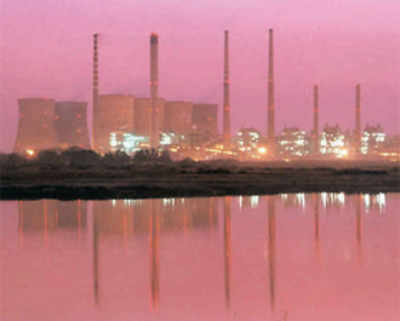Power, or God help us

There seems to be an eerie congruity between the Congress and BJP in the attack on NGOs by ruling Congress party leaders in the state Assembly last week, echoing the
If the leaked IB report said foreign-funded NGOs, like Greenpeace, were “stalling development projects” in India and compromising the nation’s economic security, Congress leader Ramesh Kumar said in the Assembly that he had information from sources in Research and Analysis Wing (RAW) that NGOs in Karnataka had received over Rs 1,000 crore since 2006 and would use foreign funds to hamper development in the state.
This is not the first time that parties have publicly come together, even while professing serious mutual hostility and differences over ideologies, when it comes to the ecology-vs-development debate. Parties Left, Right and Centre ganged up in South India on a warning by a panel led by Prof. Madhav Gadgil that many eco-sensitive sites in the Western Ghats would be endangered by mining and mini-hydel power plants. Political leaders across the spectrum went to the extent of opposing the
UNESCO has come back with another recognition this year giving similar status to The
But returning to Karnataka, the
But the real question before the state government is: "How to generate power?" Neither intellectual bluster nor piety about Mother Earth will answer that question. Karnataka is power-starved. In 2000, both Karnataka and Gujarat, whose development model is always sneered at by the Congress, had similar generation capacity: roughly about 4,400 MW. Today, Gujarat has about 26,000 MW of capacity, though not fully operational, but Karnataka lags at 14,000 MW, at best. The state is forced to buy power (for connected load) and energy from outside, but even the former 'backward' states like Madhya Pradesh and Chhatisgarh are heading into the 'developed' zone and soon will need for themselves all the power they generate.
Siddaramaiah, while ordering the usual magisterial inquiry into the police firing, pleaded with the legislators in the Assembly that Karnataka desperately needed the Rs 15,000-crore super thermal power project at Kudgi. He is right. Without power, the state will not get any further investments in industry or services. Without investment, there will be no jobs, no income for the youth or the state. Everybody will be poorer. The protesters have been misled, he said, mildly. They have been hired, his colleagues suggested, slyly. By foreign-funded NGOs, presumably: “They organise protests against hydel projects, thermal project and other developmental projects using foreign money and portray themselves as saviours of the nation. Such NGOs should be exposed,” Ramesh Kumar said.
According to the Centre for Monitoring Indian Economy (CMIE), more than 500 development projects worth over six lakh crore rupees have been either stalled or abandoned altogether in 2013-14. That is what is visible in the glowing reports soon after every "global investors' meet" and the dismal actual conversion-into-project reports, a year later. An instance in Karnataka is the Posco-India Pvt. Ltd’s Halligudi steel project that involved an investment of Rs.32,300 crore which the company abandoned because of land acquisition problems and mining scams that led to delays. Another serious reason, obviously, will be inadequate power supply, now and for many years to come. The monsoons will always be erratic and hydel power is never enough. Karnataka has no coal deposits. The chief minister must call a conference of experts — both technical and ecological — and consult with all stakeholders from industry, business, society and politics to find a balance between conflicting goals. Or, God help us, truly.
GALLERIES View more photos





















